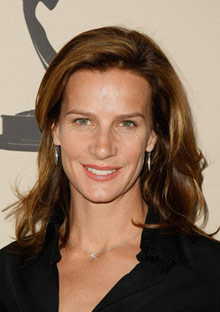
Photo: Matthew Imaging/WireImage.com
Who settled Australia? How do people survive—and outlast—a war? What makes kids love (or hate) broccoli? The answers, plus a haunting novel of family exile, expand the horizon of the Brothers & Sisters star.
I come from a young country, Australia, which was first settled by the British in 1788, so whenever I go to a place whose history predates that, I find it incredible. I want to know what makes that place come alive, not just now but in years past. I really get off on seeing the layers of time in a landscape. I've learned that if you haven't read about the geology, geography, or history, then all you're seeing is a bunch of gravel in the sunset. So when I was living in London, for instance, I dove into the Georgians and early Victorians. I read the poets, the histories, books about landscape designers. When I went to Israel, I read a lot of early Christian history—Paul and the Romans. After that, seeing Jericho or the road to Damascus became more exciting and meaningful. As much as I like to know what battle happened where, when it came time to make this list, I chose these books not just because of what I learned but because of the particular voices that wrote them. All of these writers have tremendous heart and passion.
— As told to M Healey
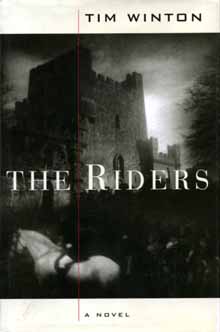
The Riders
By Tim Winton
This is a beautiful study of abandonment and exile, and especially of how people can lose a sense of who they are. The Riders follows an Australian laborer who is renovating a small cottage in Ireland, waiting to be joined by his complicated wife and their child. When his traumatized daughter arrives alone, he takes her on a trip around Europe, where he believes his wife has fled. Winton writes with an Australian-y clarity and vernacular that's very familiar to me, but what I admire most is that he's so unashamedly interested in the human condition and the process of redemption.
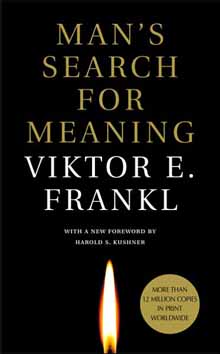
Man's Search for Meaning
By Viktor Frankl
I read this memoir in my early 20s—it was more satisfying than the godless existential work I'd read and found companionship in. This is a diary of Frankl's struggle to make sense of the enormous suffering he witnessed as a prisoner in a concentration camp. He comes to believe that even while enduring horrific experiences, we can maintain our humanity. In the second part of the book, he presents his theory of logotherapy, the idea that if we can find meaning in an experience then we can endure any psychic suffering. It's one of the most significant books of the 20th century.
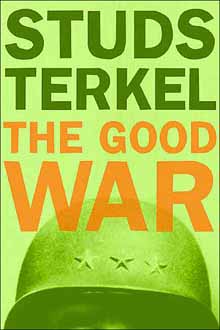
The Good War
By Studs Terkel
I spent a period of time in Chicago in the mid-'90s and I fell in love with all things Chicago. I found such pleasure in the robust, down-home intellectuals like Terkel that the city seems to produce. I've always been interested in oral history; I grew up spending a lot of time with my grandmother, who talked about Gallipoli and the Depression. The joy of this oral history is that we learn so much more about ourselves from listening to the small man's account of the war than from the general's. This book influenced me tremendously. It's made me overly invasive; I approach old Welsh men in pubs and I'm like, "Let's talk about the war!" Individuals carry our history—that's what the book left me with.
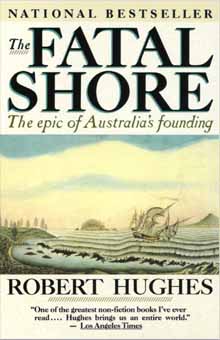
The Fatal Shore
By Robert Hughes
I'm a big fan of Robert Hughes' art criticism. I sometimes think I married an artist because of the dashing figure Hughes cut in his 1980 television series about modern art, The Shock of the New. I chose his history of Australia because it was the missing part of my understanding of my own country; it awakened me to Australia's brutal founding. I was taught a very Eurocentric history of the continent: the myth of the empty land waiting to be discovered. This book provoked probably the most profound realigning of a white schoolgirl's point of view of my country's history to a deeper, more nuanced one. And I love Hughes' tone—he just makes history sexy.
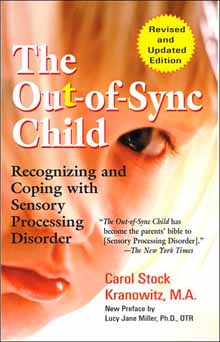
The Out-of-Sync Child
By Carol Stock Kranowitz
This book examines how people take in and process information differently. I read it seeking certain answers about my own child's behavior. It was a revelation. It helped me to understand the interplay between nature and nurture, myself, my husband, and so many people in my family. I grew up with the idea that everything we are is a response to what was done to us. But this explained why one child in a family can shove extraordinary amounts of broccoli into her mouth and won't eat soup or anything smooth, and why another child is so sensitive orally that he can't eat anything with texture. It showed me that so many preferences we believe to be intellectually driven have nothing to do with what we think but rather with what we feel.
More Books That Made a Difference




